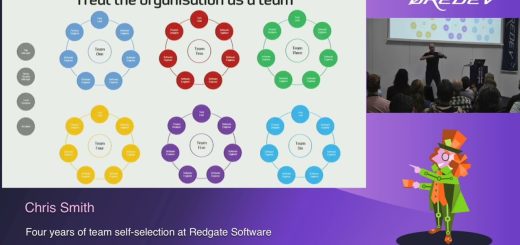Book Review: Peopleware – Productive Projects and Teams
This is the third edition of the famous Peopleware book written by Tom DeMarco and Timothy Lister, published for the first time in 1987. This book is a classical work that has emphasized for a long time the importance of people in software development. As the authors wrote it: “The major problems of our work are not so much technological as sociological in nature.” The book covers all topics related to the people aspect of project management in software development: productivity, office environment, hiring, leadership, team building.
For those who have already a previous edition of the Peopleware book by Tom DeMarco and Timothy Lister, the new sections in this third edition treat some pathologies of leadership that hadn’t been judged pathological before, an evolving culture of meetings, hybrid teams made up of people from seemingly incompatible generations and a growing awareness that some of our most common tools are more like anchors than propellers. The book is well written, easy to read, mixing seamlessly the discussion about concepts with some real life stories. I recommend this book to every people involved in software development, whether you are a manager or not.
Reference: Peopleware – Productive Projects and Teams, Third Edition, Tom DeMarco and Timothy Lister, Dorset House Addison-Wesley, 978-0-321-93411-6

Quotes
Once the idea was out in the open, we began to think up examples, and it soon became clear to both of us that the social complexities on most of the projects we’d known simply dwarfed any real technological challenges that the projects had had to deal with. And then, inevitably, we needed to face up to something far more upsetting: While we had probably known in our bones for a long time that sociology mattered more than technology, neither of us had ever managed that way.
For all the talk about “working smarter,” there is a widespread sense that what real-world management is all about is getting people to work harder and longer, largely at the expense of their personal lives. Managers are forever tooting their horns about the quantity of overtime their people put in, and the tricks one can use to get even more out of them.
But the best leadership – the kind that people can mention only with evident emotion and deep respect – is most often exercised by people without positional power. It happens outside the official hierarchy of delegated authority.
The maddening thing about most of our organizations is that they are only as good as the people who staff them. Wouldn’t it be nice if we could get around that natural limit, and have good organizations even though they were staffed by mediocre or incompetent people? Nothing could be easier – all we need is (trumpet fanfare, please) a Methodology.
The ultimate management sin is wasting people’s time. It sounds like this should be an easy sin to avoid, but it isn’t. You have some needs of your own as a manager, and these needs may run squarely against your intention to preserve and use wisely the time of the people working under you.


